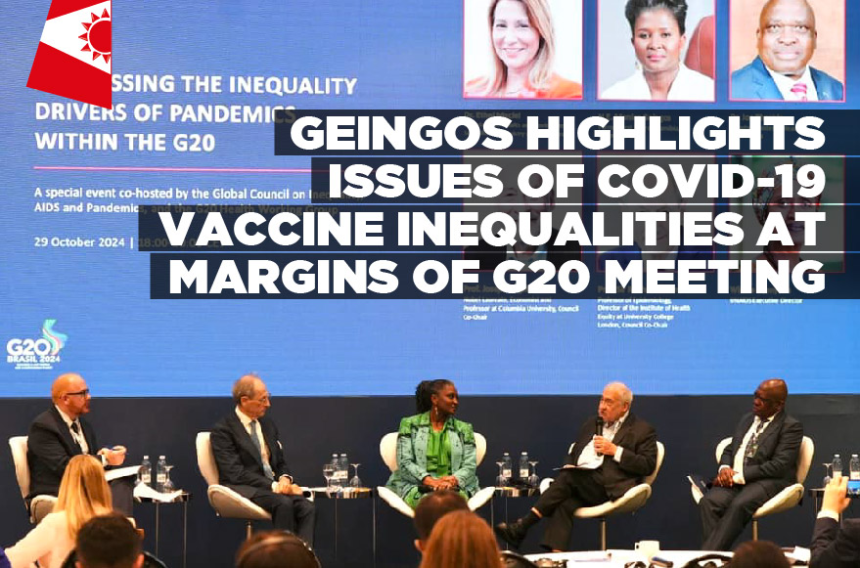Staff Regards
THE third First Lady of Namibia, Monica Geingos, has said that many countries adopted a ‘me first’ approach during the COVID-19 pandemic, sidelining the importance of global cooperation.
Geingos made these remarks on 29 October 2024 at the meeting of the Global Council on Inequality, AIDS, and Pandemics, held on the margins of the G20 Health Ministerial and High-Level Meetings in Rio de Janeiro, where she attended in her capacity as co-chair of the Council.
The Council meeting brings together thought leaders from academia, government, and civil society to engage in meaningful dialogue on the deep-seated inequalities driving pandemics such as AIDS, mpox, and COVID-19. The G20, which is the premier forum for international economic cooperation, presents an opportunity to reintegrate the conversation on social determinants.
On 29 October, the co-chairs of the Global Council on Inequality, AIDS, and Pandemics—which include Geingos, Prof. Joseph Stiglitz, and Prof. Sir Michael Marmot—together with Dr. Joe Phaahla, participated in the panel ‘Addressing the Inequality Drivers of Pandemics within the G20’.
In the panel, Geingos shared that while Namibia has a stable macroeconomic environment and the resources to purchase vaccines, vaccine hoarding during the COVID-19 pandemic hindered access. “Namibia had the money, but couldn’t buy the vaccines,” she said.
Furthermore, Geingos highlighted that disparities rooted in race and income underscore the urgent need for a commitment to equity. “We must move beyond rhetoric and turn discussions of a just world into concrete actions, seizing this opportunity to transform theory into practice,” Geingos said.
She cited a McKinsey study indicating that women spend 25% of their time in poor health. Geingos emphasised that without tackling gender inequality—which is not just a moral imperative but also an economic necessity—we cannot effectively prepare for pandemics.
The panel concluded by acknowledging Brazil’s pioneering G20 presidency, which opens vital avenues to confront social determinants of health. This presents an opportunity to commit to systematically measuring and addressing the inequalities that drive pandemics.
The G20 is made up of 19 countries (Argentina, Australia, Brasil, Canada, China, France, Germany, India, Indonesia, Italy, Japan, Korea, Mexico, Saudi Arabia, South Africa, Russia, Türkiye, UK and USA) and two regional bodies: the African Union and the European Union. The members of the G20 represent around 85% of the world’s GDP, more than 75% of world trade and around two-thirds of the world’s population.


